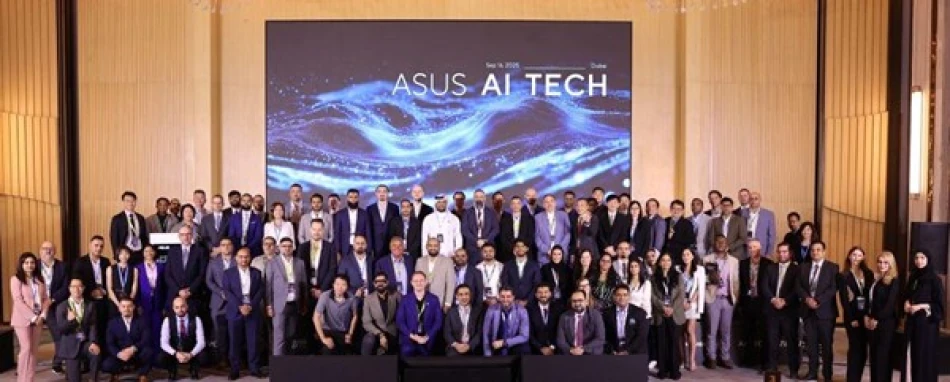
Dubai's 'ASUS' Summit Explores the Future of Sovereign Artificial Intelligence
ASUS wrapped up its first AI technology summit in Dubai, bringing together major tech companies including NVIDIA, AMD, Micron, Weka, Foxconn, Schneider Electric, and Data Direct Networks. The event focused on sovereign AI – the idea that countries need to control their own AI development and governance rather than relying on foreign systems. This matters because governments and businesses increasingly want AI solutions that comply with local laws and security requirements.
The summit highlighted how sovereign AI has shifted from being a nice-to-have advantage to a critical national need. Paul Ju, Senior Vice President at ASUS, explained that organizations now need AI systems that meet strict security, performance, and compliance standards while staying under local control.
ASUS used the event to launch its comprehensive sovereign AI services, offering everything from high-performance computing and scalable storage to sustainable power and advanced cooling systems. The company demonstrated its Infrastructure Deployment Center platform, which can set up large-scale AI units powered by NVIDIA GB200 NVL72 systems in just 30 minutes. This includes operating system deployment, memory and storage configuration, network integration, and security settings.
The healthcare sector got particular attention, with ASUS partnering with national research centers to develop precision medicine through an internally-built AI platform. This system has delivered significant improvements in genome analysis, molecular simulation, image processing, and AI-powered language processing compared to traditional CPU-based systems.
Several companies showcased their latest products during the summit. NVIDIA highlighted its new GB300 NVL72 infrastructure and Omniverse platform. AMD displayed servers powered by EPYC processors with up to 192 cores for next-generation data center workloads. Micron revealed the world's first PCIe Gen6 solid-state drive designed for AI training, plus storage units reaching 245 terabytes for massive data centers.
Other participants brought their own innovations. Weka presented high-performance storage solutions for sovereign AI workflows. Schneider Electric showed sustainable power and cooling innovations for regional AI infrastructure. Foxconn demonstrated AI-enhanced automation solutions for fully automated factories. Data Direct Networks introduced its next-generation DDN Infinia platform for comprehensive AI data management.
The sovereign AI services cover five main areas: strategic infrastructure design, seamless computing implementation, advanced performance optimization, AI platform development, and comprehensive lifecycle management. Each service focuses on security, scalability, and regulatory compliance to help organizations achieve both operational excellence and true digital sovereignty.
This push toward sovereign AI reflects growing concerns about data security and national competitiveness. Countries want to ensure their critical AI systems remain under local control, especially for government, healthcare, and infrastructure applications. For businesses, this means faster market entry and better compliance with local regulations, while governments gain more control over their digital infrastructure.
Most Viewed News

 Layla Al Mansoori
Layla Al Mansoori






